What is it good for?
- Learning more about the challenge you're working on
- Learning more about your users
- Learning what has already been done elsewhere to address the challenge
- Testing some of your assumptions (see Knowledge Board)
When to use it
Get the tool
Make a copy of the Desk Research Tracking spreadsheet and get started with your desk research:
How to use it
You'll explore both the charity sector and broader fields to understand the current landscape and previously tested approaches.
There are two types of research activity:
- Primary research (conducting your own original research)
- Secondary research (reviewing existing research by others)
Desk research falls under secondary research. Rather than collecting new data, you'll review existing research findings to build a comprehensive understanding of your field.
Focus on the items in your Knowledge Board's "Think we know" and "Don't know" columns. Keep your research targeted and efficient—start with a three-hour time limit.
🔍Consider researching:
- Internal knowledge. Review your organisation's existing knowledge, service data, and past initiatives to understand what has already been attempted.
- Previous research. Leverage existing research to address the “unknowns” on your board—there's plenty of valuable work already out there.
- Existing products. Study products and services (both within and outside your organisation), analysing their concepts, interactions, and user experiences. Your research scope can range from highly specific to broad, depending on your needs.
Copy or download the Google Sheet above to track your research.
Note: don't forget to update your Knowledge Board as you go.
🤖 Using Generative AI for desk research
You could consider using generative AI tools to support you with this task, asking ChatGPT, Claude, or other tools questions that will uncover existing reports, knowledge and products. Plausible is a particularly good tool for desk research as it will reference all of the reports it sources its information from.
Remember that AI can make mistakes though, so it’s always worth fact-checking the results. Make sure you’re not putting any sensitive information or data into the AI tool, and you’re working within your organisation’s AI policy or guidelines.
Check out the Digital Toolkit AI Experimentation Canvas to help you define the parameters for using AI safely for your desk research, and other tasks.
